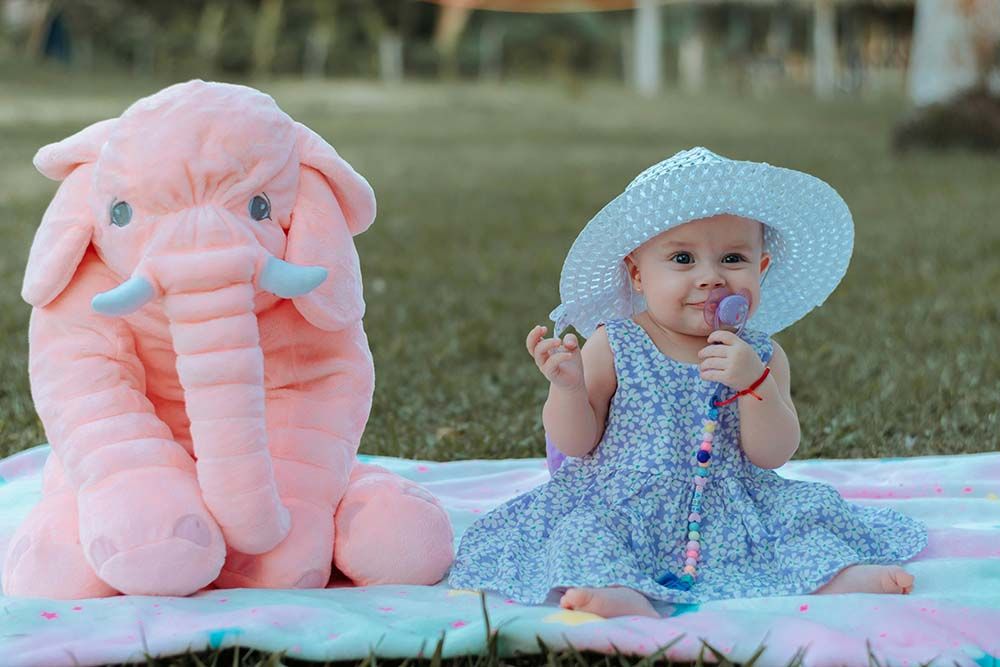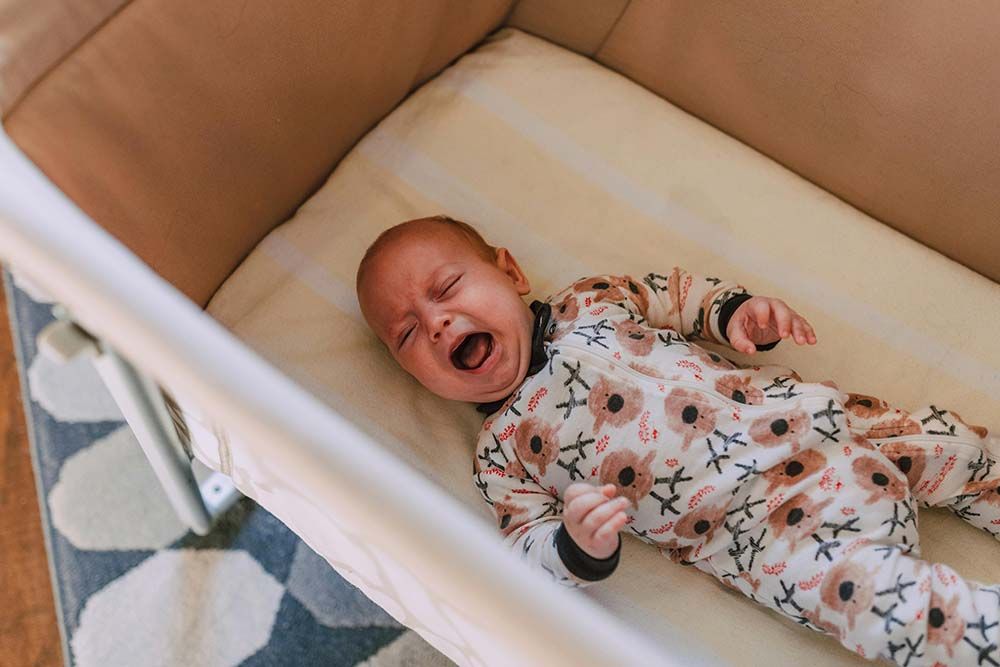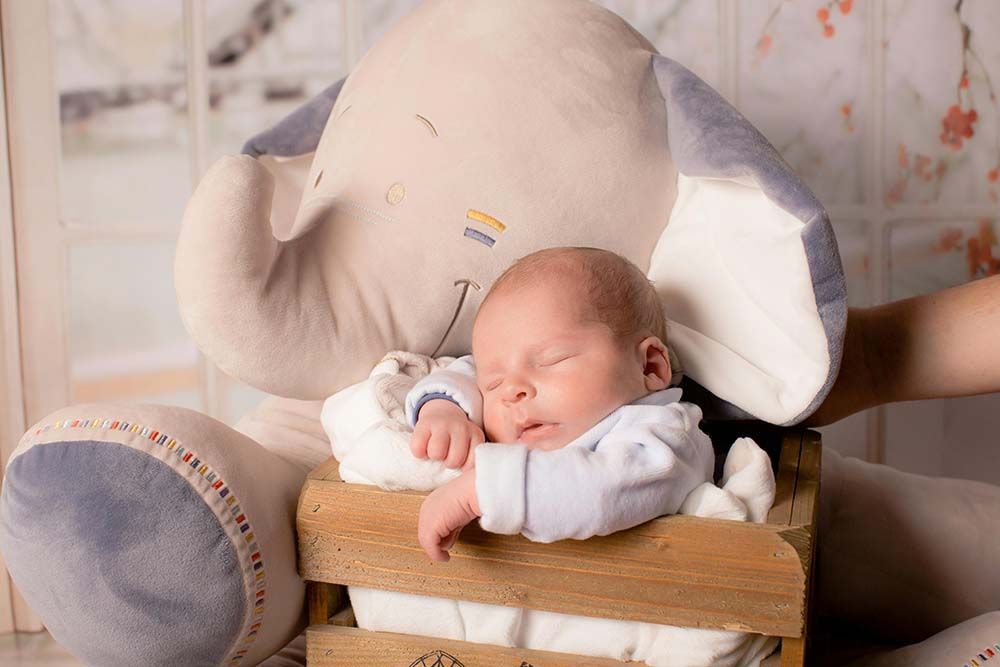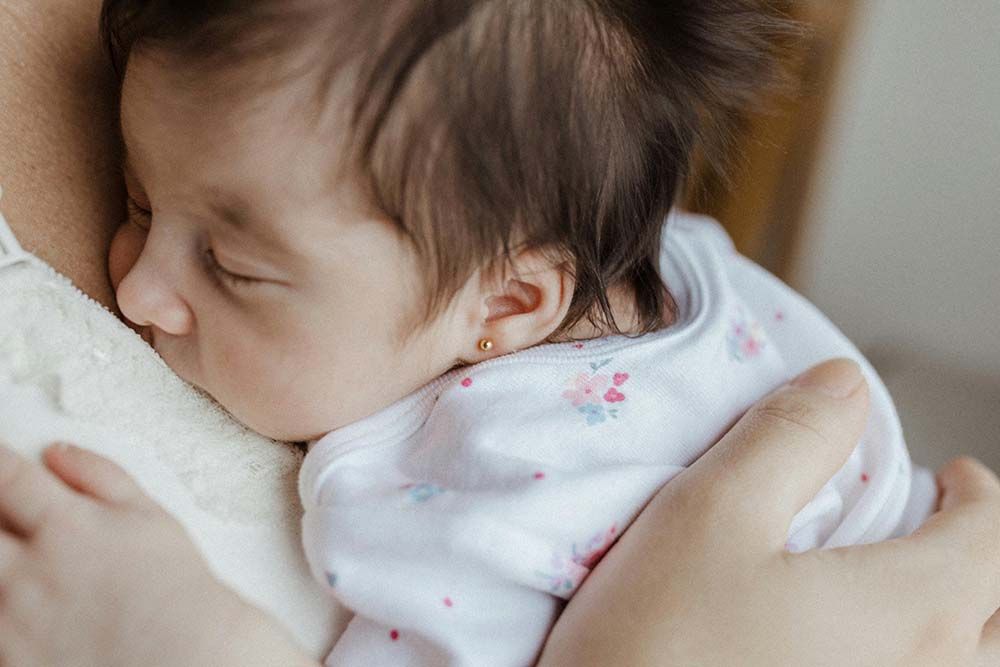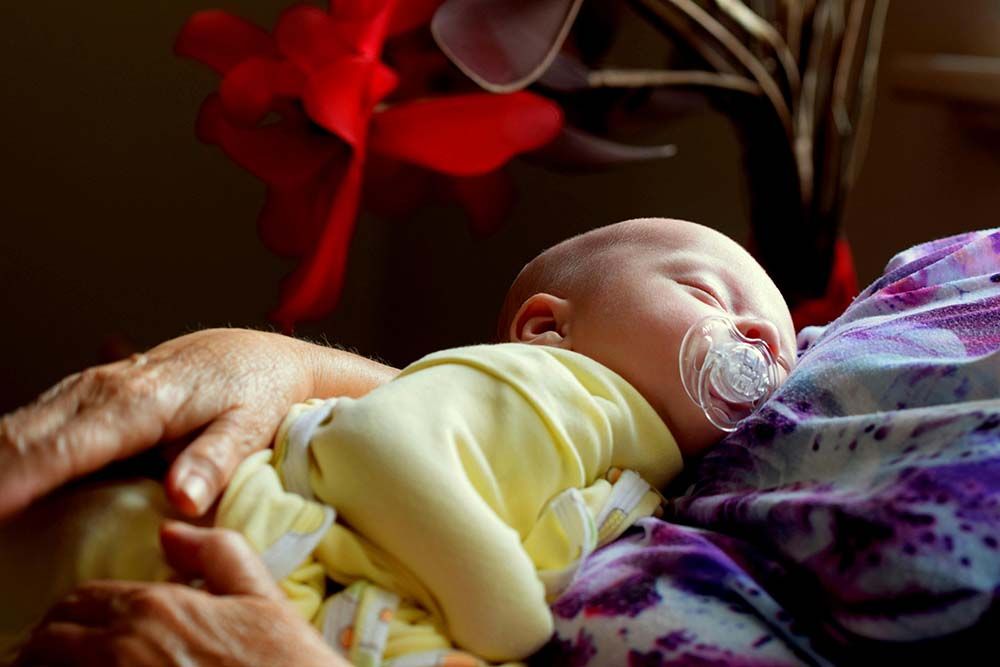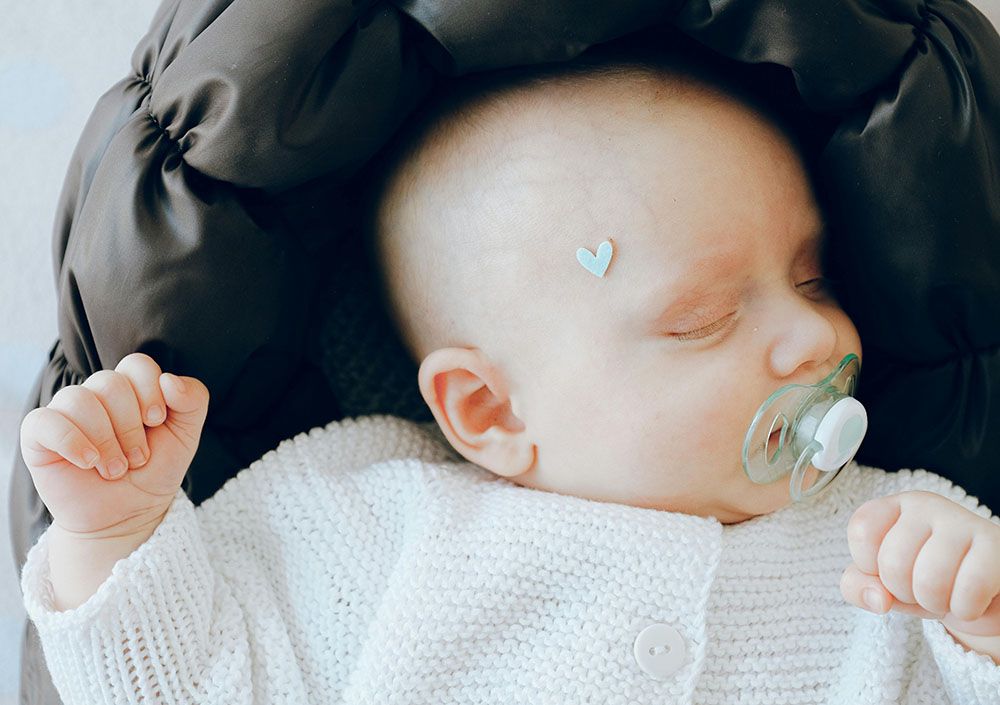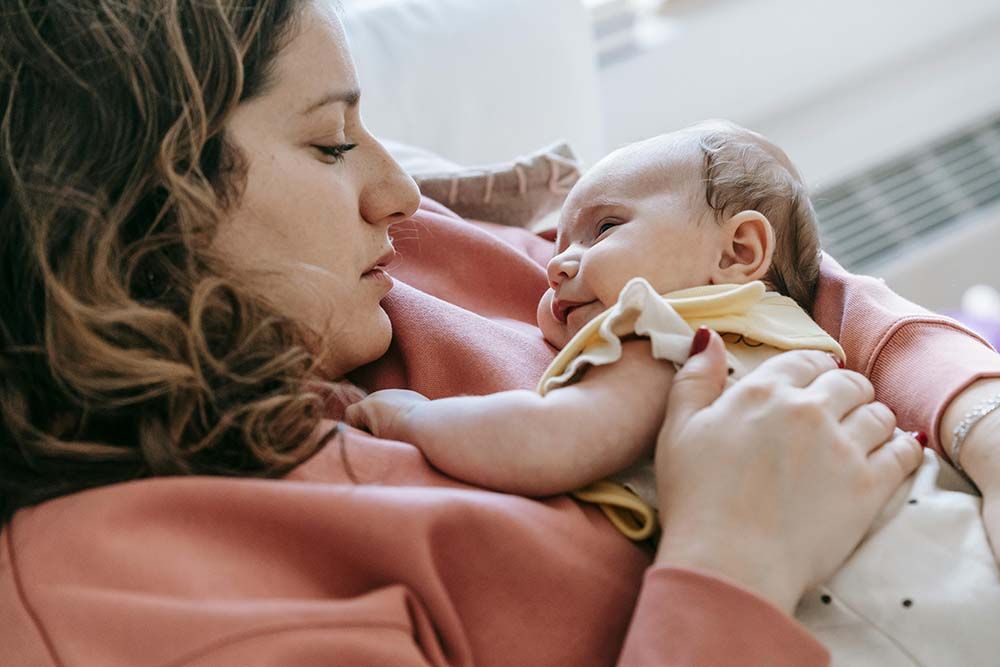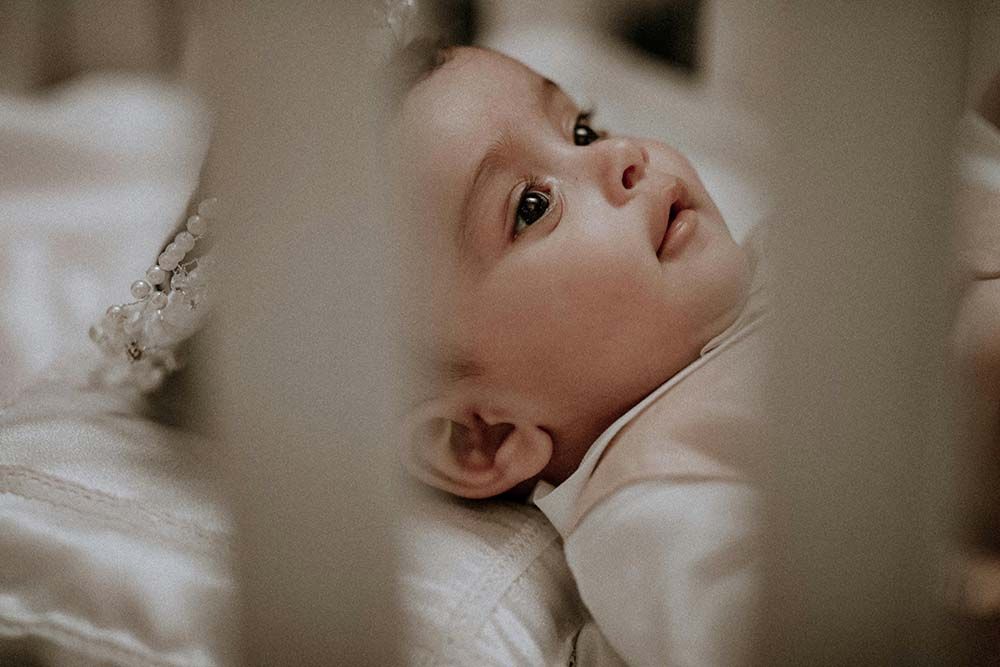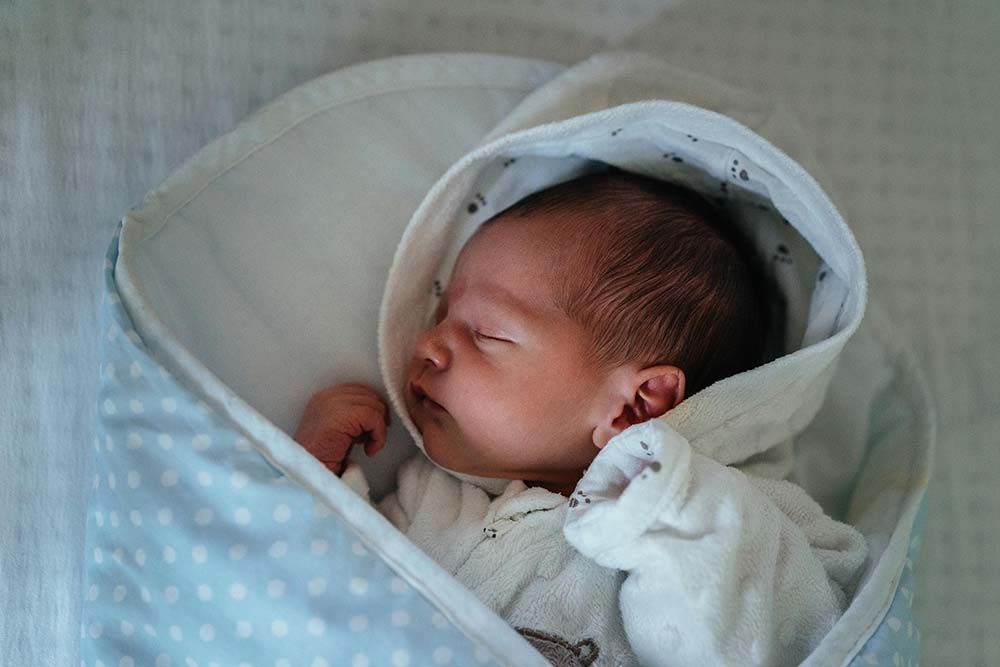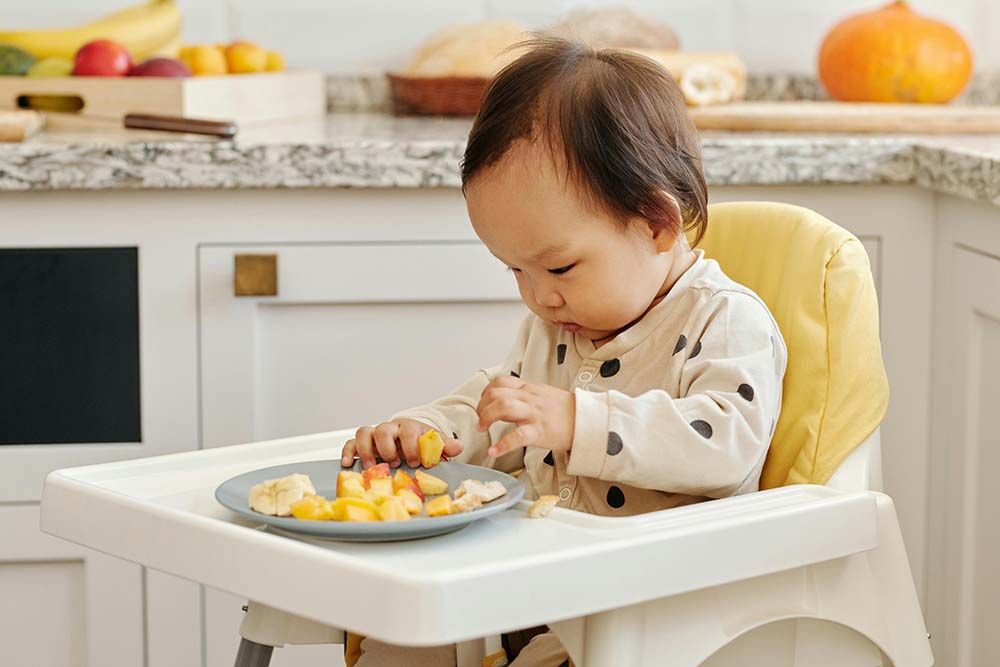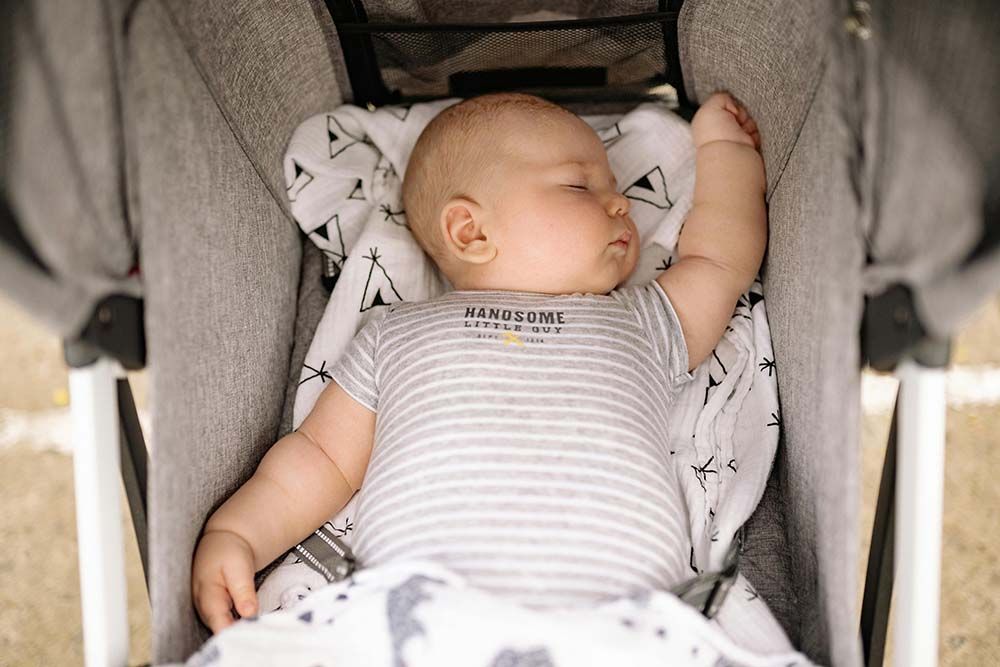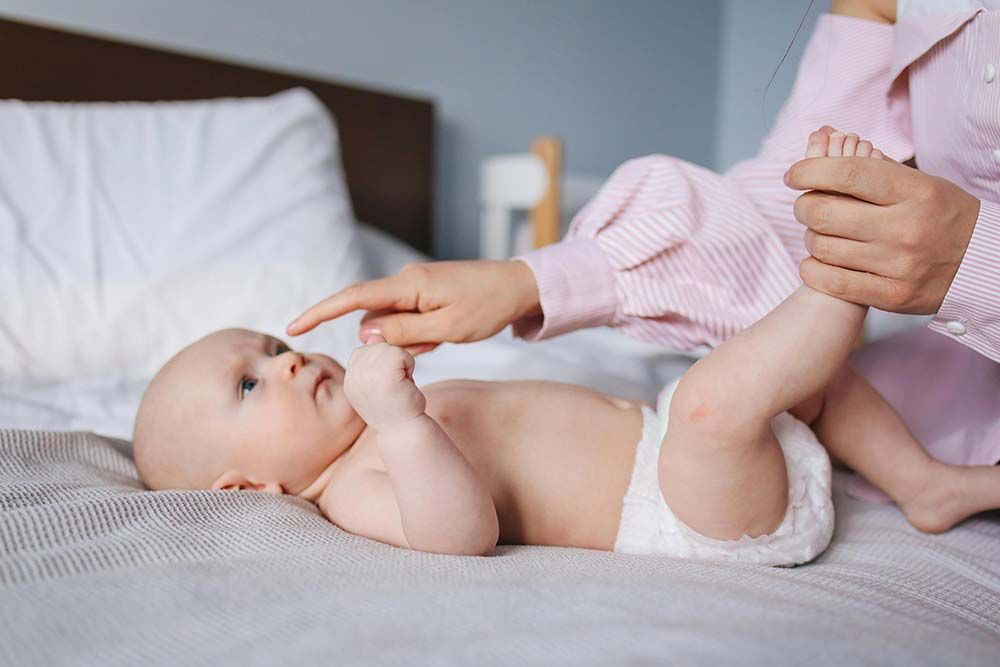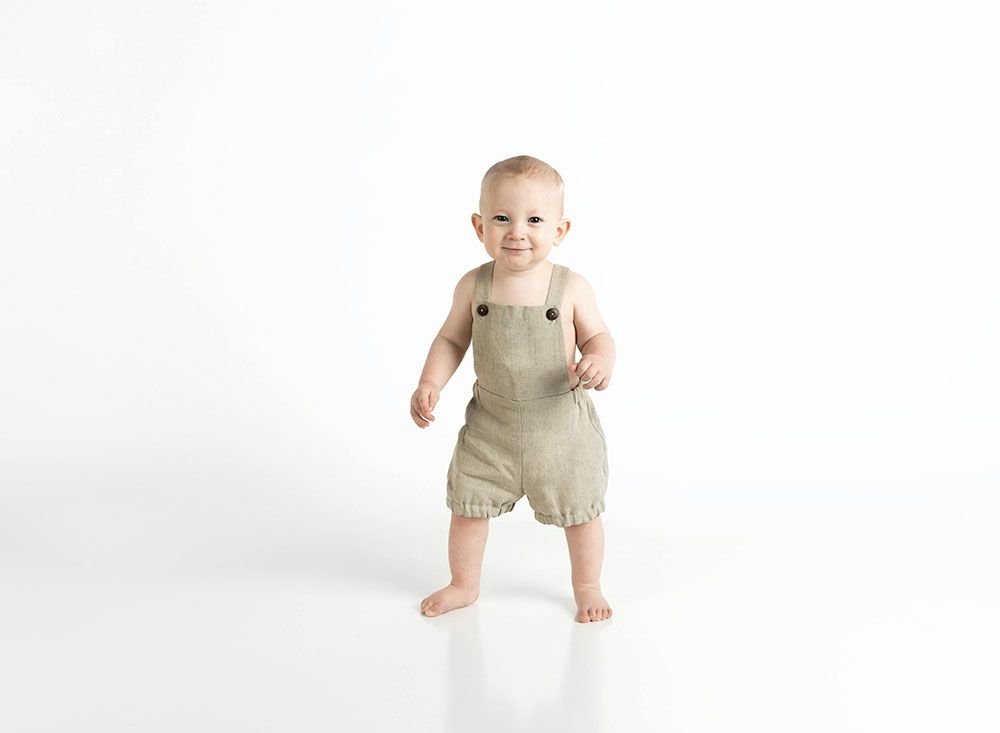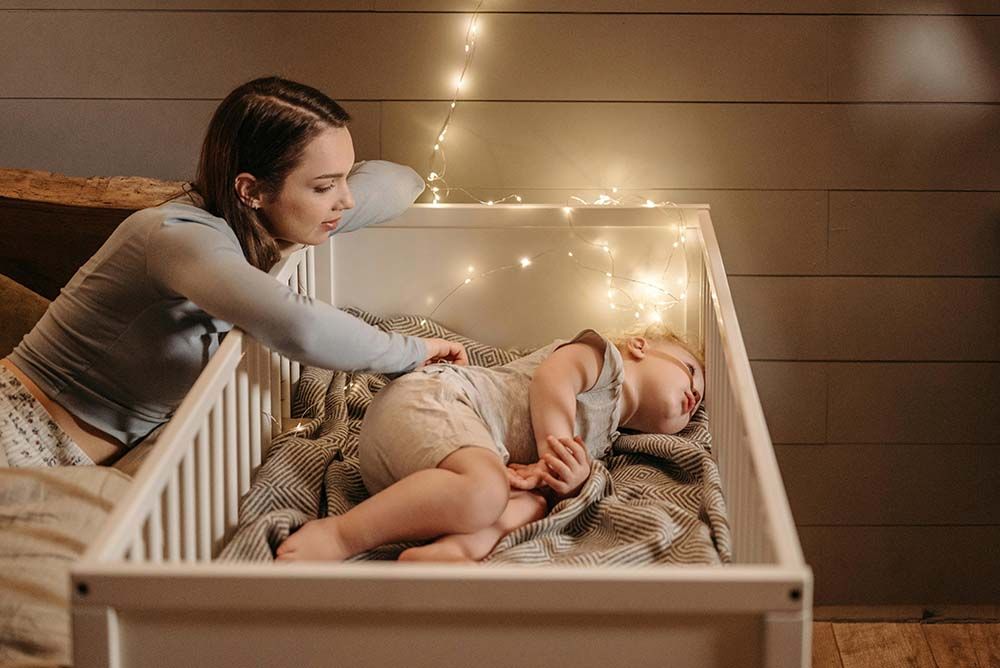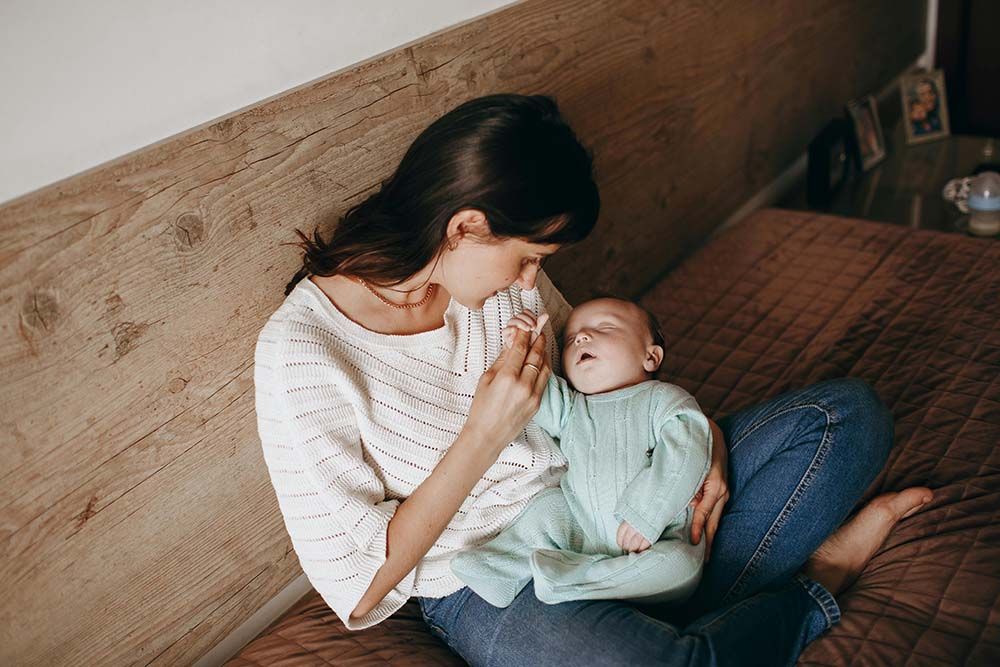

Some newborns will start to cry once they are placed in bed for sleeping. Many parents who are immersed in the great happy of having baby for the first time, they pretty cherish the time with baby and prefer to hold baby to add more intimate contacts. However, as baby grows, holding baby becomes an increasingly hard thing. Meantime, potential risks behind holding baby to sleep also comes quietly. Thus, this article will reveal the details in reasons, advantages and disadvantages, solutions to assist parents in dealing with baby to sleep independently.
Moonycare: Your Smart Partner in Your Parenting Journey
If you want to make your parenting life simply, it is recommended to use Moonycare app. With it, you can easily track your baby's key activities such as feeding, diaper changing, sleeping patterns, etc. What's special is that it also allows you to record each time you hold your baby to sleep and when your baby falls asleep in the bed, helping you to discover any patterns or trends so that you can deal with challenges more effectively. It also provides personalized reminders to ensure that you don't miss any important nursing moments. For example, it can remind you when it's time to feed your baby or change his diaper, or even prompt you to do a bedtime routine when your baby starts to show sleepiness. There is no doubt that Moonycare is a valuable tool for parents who want to better understand their baby's needs and gradually guide them to establish good sleep habits. Download Moonycare to make your parenting journey smoother and worry-free.
IN THIS ARTICLE:
Why Does My Newborn Only Sleep When Held?
Pros and Cons of Newborn only Sleeps When Held
When to Stop Contact Sleeping?
What to Do if Newborn only Sleeps When Held?
How Long Does it Take for a Baby to Adapt to Sleep Independently?
Why Does My Newborn Only Sleep When Held?
The causes of why my newborn only sleeps when held can be diverse. Below is listed some main reasons.
Physiological sense of security: Newborns have just come out of their mother's womb and are accustomed to the warmth and tightness of the uterus. When held, they feel a similar sense of security, helping them relax and fall asleep more easily.
Moro reflex: Moro reflex is a response caused by sudden movements or sounds, manifested as rapid extension of arms and legs for infants. When babies lie flat on a bed or crib, this reflex may make them feel uneasy and cause them wake up from the sleep suddenly, while holding them can alleviate the impact of this reflex.
Temperature and heartbeat: In the embrace of the mother, the baby can feel the mother's heartbeat and body temperature, which helps to soothe the baby and make them feel more at ease.
The emerging of separation anxiety: It is normal for babies to grow a sense of separation anxiety at around 4 to 5 months, making them cannot fall asleep independently. When you hold them to sleep, they will recognize that you are the near side, making them sleep securely.
Habit: Sometimes, you baby may have reflux, gas, or other discomfort issues, you may hold them and do some other activities to ease the discomfort. Once babies are accustomed to it, it will become hard for them to go to sleep on their own.
Parents make too quick response to baby’s crying: It is normal for babies to cry at the beginning of starting a sleep because of crankiness. Many new parents cannot bear with any cry voices, so they rush to hold baby to comfort until the baby falls asleep, gradually. leading to babies prefer to being held when sleeping.
Pros and Cons of Newborn only Sleeps When Held
The benefits of sleeping with a baby in your arms
Enhance sense of security:
Holding a baby can give them a similar sense of security when they are in the womb, helping to soothe and relax. Also, substantial physical contact in the initial stage is beneficial to baby’s mental health development, largely satisfying their attachment needs.
Promoting parent-child relationships:
Skin to skin contact is good for increasing emotional connections among parents and children. By doing to, it helps establish trust and a sense of security, as well as promote breastfeeding.
Improving sleep quality and reducing crying:
Some babies will fall asleep more easily and sleep more securely when they feel their parents’ heartbeat and body temperature. And their crying and anxiety will also diminish consequently.
The disadvantages of sleeping with a baby in your arms
Forming strong dependencies:
If babies are accustomed to being held to sleep, it is naturally for them to become dependent on this state, making it hard for them to fall asleep alone. Once formed, it requires parents to spend more time and energy adjusting their babies' sleep habits, which is really annoying.
Affecting parents' rest:
Holding a baby for a long time can make parents feel tired, which can affect their sleep quality and daytime mental state. What’s more, with the regular increasing in baby’s weight and height, it will be a huge task for parents to hold babies to sleep.
Potential safety risks:
Safety is the first thing. If you fall asleep while holding the baby, there may be a risk of the baby slipping out of your hands. In addition, there is a risk of suffocation or other accidental injuries when sleeping with a baby on the sofa or bed.
When to Stop Contact Sleeping?
The ideal age to train your baby sleep independently is around 3 to 4 months old. On the one hand, babies at 3 months have reached a relatively mature level of physiological development, who are able to distinguish between day and night and can sleep longer. On the other hand, starting from 4 months, babies start to exhibit the ability to self discover and self comfort, helping them fall asleep on their own. Therefore, if parents are physically and mentally ready for stopping contact sleeping, they can start from this time range.
What to Do if Newborn only Sleeps When Held?
Due to diverse reasons, many parents tend to hold baby in arms to comfort them for sleeping, resulting newborn only sleeping when held. As we mentioned before, with the development of baby, there are an increasing number of potential risks that could threaten baby’s safety. Thus, we have collected a series of effective methods to the needed parents to help their newborns to develop the capacity to sleep independently.
1. Gradually transitioning
At first, introduce a fixed bedtime routine, including taking a warm shower, reading stories gently, singing lullabies, indicating your baby that he needs to sleep. And put baby to bed when they are drowsy but still awake, gradually reducing the holding time until the baby can sleep in bed completely. At this process, you can also give babies some familiar soothing objects in bed to help them feel safe, such as a plush toy or a soothing cloth.
2. Create a safe and comfortable environment
Ensure that the temperature of the baby's sleeping environment is appropriate, neither too hot nor too cold. And use a safe crib or bed for sleeping, removing the items that may lead to suffocation. If needed, use a sleep sack to replace a blanket, which can not only cut down the risk of suffocation, but also prevent babies from catching a cold because of kicking off the blanket.
3. Make a delayed response:
When babies wake up at night, parents should wait for a few minutes to observe if they can fall back asleep on their own. If the baby continues to cry, then comfort them. But remember that try to maintain low voices and soft lighting, avoiding excessive stimulation to mix them that it’s playtime.
4. Take precaution to reflux
Since reflux can affect baby’s sleep, you can prevent reflux by adjusting dietary, such as avoiding feeding too quickly, adjusting formula milk, or promoting multiple meals with small amount. After feeding, you can also hold baby upright and gently pat their back to help expel the swallowed air.
5. Use white noise:
Playing white noise can not only help babies calm down, but also mask external noises, thereby promoting a more smooth transition to sleep.
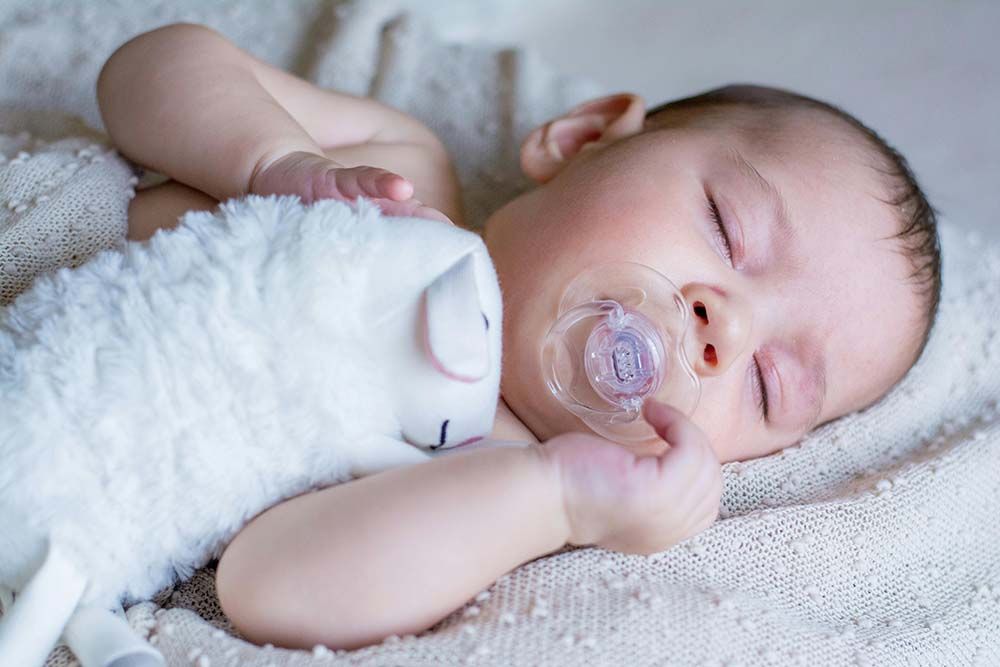
Through experimenting, these methods can truly help your baby to develop the ability to sleep alone in bed or crib. Because each baby is unique, it is necessary to give time to your baby and you to adapt. If needed, adjusting the method based on your baby’s reaction. Remember that patience and consistency are vital in this process. If you have difficulties during the training process, consult with a pediatrician or pediatric sleep consultant for professional guidance.
How Long Does it Take for a Baby to Adapt to Sleep Independently?
Considering to the differences among individuals, families and the applied methods, the time required for a baby to transition to sleep alone is variable. Most babies need 3-4 weeks to adapt to sleep alone. Some babies trained with appropriate methods will emanate obvious improvement within only 1-2 weeks. However, there are some babies who might need a little longer, up to 1-2 months, to fully adapt. Generally speaking, the adaption process may take several weeks to months. Furthermore, older babies with independent temperaments and with the assistance of family’s consistency can accelerate this process.




